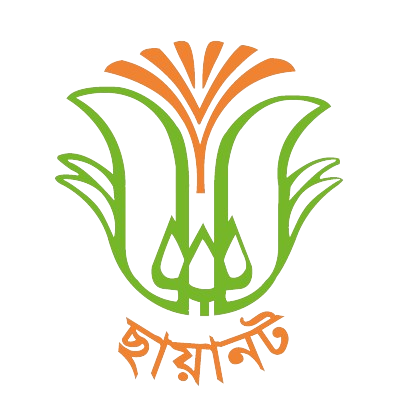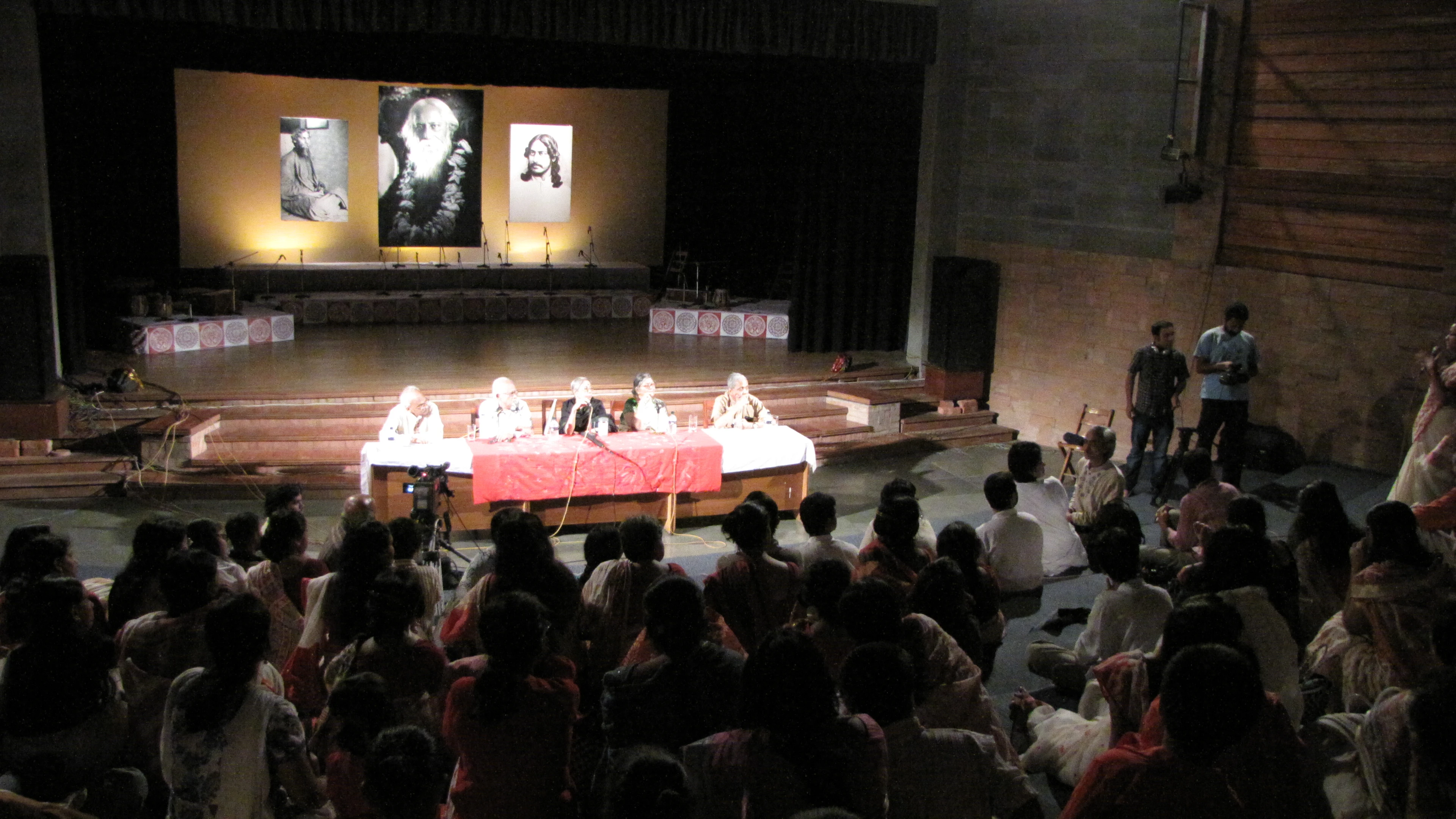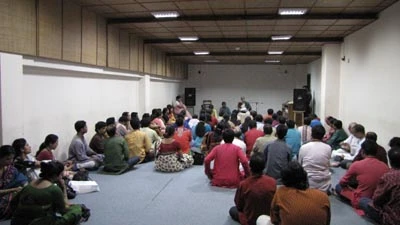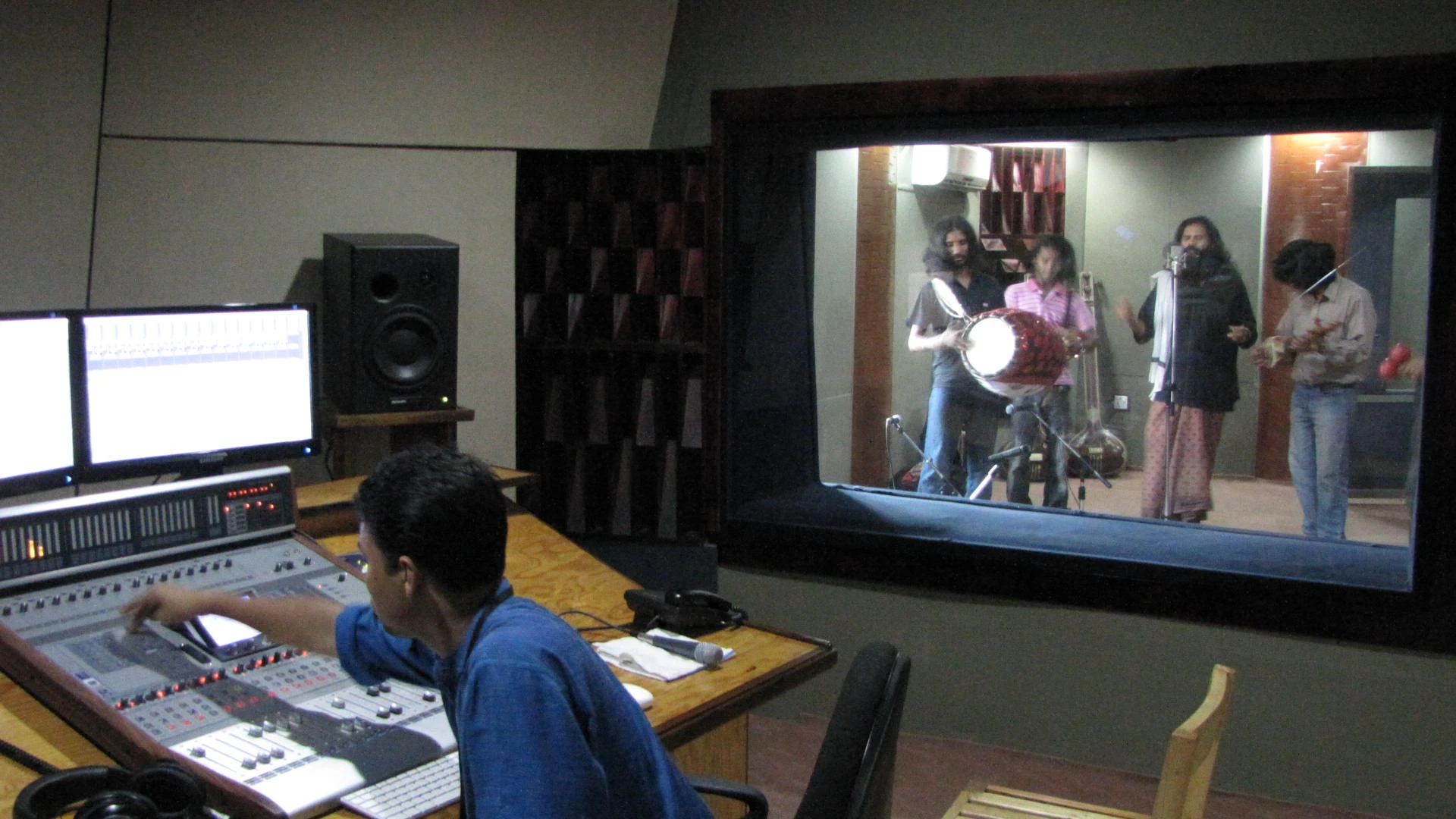Chhayanaut
Pakistan’s rulers, since its inception in 1947, tried to use religion to rupture the plural cultural identity of Muslim Bengalis; this was reflected in their onslaught on Bangla language and culture. This was the political and cultural milieu in which Chhayanaut was established in 1961. The organization was founded after hosting the birth centenary celebrations of Rabindranath Tagore. Chhayanaut nurtures Bengali culture with the study of Tagore as its central focus.
At the same time, Chhayanaut became an open forum for people to stand in solidarity with the oppressed and the distressed.
Chhayanaut created a landmark national tradition by launching the celebration of Bengali seasons. The musical welcome on the first dawn of Baisakh under the banyan tree in Ramna, begun in 1967, brought back the Bengali new year into the consciousness of city dwellers. Thus, Chhayanaut has become a partner in the glory of the Bengali passage that began with a cultural renaissance and led to the war for independence. During the liberation war, Chhayanaut singers organised performances to inspire freedom fighters and refugees. After independence, Chhayanaut has been involved in seeking creative ways to broaden and intensify the practice of music and, more broadly, the celebration of Bangla culture.
Bangladesh has earned independence, but hostility to a humane, plural Bengali ethos has not entirely disappeared. On April 14, 2001, ten people were killed and 35 injured in a bomb attack during the celebrations of the Bengali new year organised by Chhayanaut at the Ramna batamul. However, even this barbaric act failed to deter the artists and music students of Chhayanaut. Backed by a groundswell of massive popular support from the public, the institution celebrated the following Bengali new year with its traditional musical welcome in an open-air concert at dawn. The annual concertat the Ramna batamul, free and open to the public, is an inseparable part of the Bengali national heritage today.
Chhayanaut believes the nation will find its path to development through this cultural renaissance. It believes that our celebration of fraternity and creativity under the broad rubric of an inclusive humanist culture will triumph,leaving behindreligious bigotry, fundamentalism and xenophobia. Chhayanaut believes that an outlook enriched by a humane cultural consciousness will spur the creation of a tolerant and broadminded nation. This is how Bengalis will progress towards building a modern advanced society.
In addition to cultural activities, Chhayanaut has always rushed to the aid of people at times of famines, floods or riots. It has brought people together to resolve crises with songs of protest on their lips.
Moved anew by the recent terrorist attacks on humanity by religious reactionaries and fundamentalists, Chhayanaut is spearheading another cultural program. To unify all progressive people of humane,secular values, the institution helps to organize a gathering of thousands on December 16 to mark Victory Dayat the central grounds of the University of Dhaka. The thousands who gather here are not merely spectators or listeners; they are the participants as well, singing along with Chhayanaut representatives previously selected songs which pay homage to the motherland. Chhayanaut believes this will revive our quintessential traditions of living in harmony and rekindle our love for motherland and mankind.
Since 1963, through its School of Music, Chhayanaut gradually broadened its curriculum to include instruction of Tagore songs, Nazrul songs, traditional Bengali songs, folk songs, classical vocal and instrumental (Tabla, Sitar, Violin, Flute, Esraj) music and dance (Manipuri and Bharatanatyam). Chhayanaut is currently the largest informal school of music in the subcontinent with over four thousand students. In scale and scope, this is an endeavour unmatched elsewhere in the subcontinent.
To achieve its broader goals besides administering its music school, Chhayanaut has expanded its activities to disseminate and strengthen Bengali cultural heritage for various groups. Nalonda Vidyalaya is a mainstream general education school with emphasis on cultural traditions and holistic development of children. Shikor is an informal arrangement for children to familiarize them with Bangla culture and heritage through holistic development. Shurer Jadu-Ranger Jadu is a music therapy and painting program for autistic children, enabling them develop their everyday skills. Bhasha o Shangskritir Alap is an interactive program that promotes the proper usage of Bangla and develops awareness of language and literature.
Chhayanaut also published a quarterly magazine on literature and arts titled Bangladesher Hridoy Hote (From the Heart of Bangladesh) from 2008 to 2015. Chhayanaut has released, and is keen to continue publishing, CDs and other books as well. Chhayanaut currently operates a resource centre, which preserves a rich treasury of musical and performing arts heritage of Bangladesh.
In 2001, the Government of Bangladesh, in recognition of Chhayanaut’s four decades of service to culture, granted a plot of land in Dhanmandi. Chhayanaut had been able to save some financial resources over the years, thanks to the fact that most teachers in Chhayanaut Sangeet Vidyayatan offered their services free. Chhayanaut, through the contribution made by its teachers, students, cultural activists and in particular generous patrons from all walks of life, without any foreign grant, built the Chhayanaut Shangskriti-Bhavan, a multi-story facility for its classes and events. This Shangskriti-Bhavan has an auditorium, a seminar hall, a lecture hall, a full-fledged audio recording studio, a library, audio-visual archive facility and audio-visual booths.
Founder Members:
Sufia Kamal (founder president), SayeraMohiuddin (founder vice president), Farida Hasan (founder secretary), Mokhlesur Rahman Shidhu, Shamsunnahar Rahman, Ahmedur Rahman, Mijanur Rahman Chhana, Saifuddin Ahmed Manik, Saidul Hasan, Wahidul Haque, Debdas Chakroborti, Nurul Islam, Imdad Hossen, Hazera Mahmud, Md Idris. Sanjida Khatun, the present president, has been involved from the very beginning, but she was not officially enlisted as she was in government service as an educationist.





